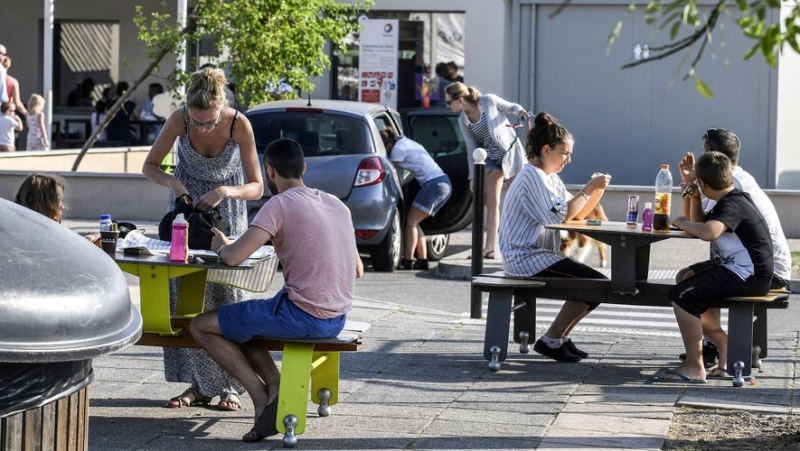“Irish”, “Peruvian”, “tow truck” scams… how not to be fooled during the summer holidays ?

Les aires d'autoroutes (ici sur l'A7) peuvent devenir le théâtre d'arnaques en tous genres. PHILIPPE DESMAZES/AFP
Sur la route des vacances, des arnaqueurs peuvent profiter de l'affluence sur les aires d'autoroutes pour essayer d'extorquer de l'argent aux automobilistes de passage. Découvrez comment ne pas vous laisser berner.
Motorway rest areas can become veritable nests of crooks over the course of a summer. Law enforcement, but also motorist associations, warn against these practices, which can be very harmful.
The Irish "scam"
One of the most common scams, known as “Irish-style” scams, consists of approaching French motorists pretending to be British tourist victims. of a car breakdown. They then ask that we can lend them a few hundred euros in cash to help them out, by presenting false documents (identity papers, RIB, etc.).
They obviously promise to repay their kind lenders, for example by making a bank transfer, which unfortunately never arrives, or by filling out a false acknowledgement of debt.
The “Peruvian” and flat tire scam
Another form of scam, this time called “Peruvian”, is even worse. It involves faking a breakdown on the side of the road and then robbing motorists who stop to help them of their belongings.
Even more vicious, the flat tire scam consists of thieves choosing their victims on the motorway service area, deflating or even puncturing one of the tires from their car then follow them when they leave to better attack them a few kilometers further. When the car is forced to park because of its flat tire, one of the criminals will get in and steal what he can while the others will try to help and to divert attention from the victims.
The tow truck scam
Finally, the tow truck scam is perhaps the trickiest. Fake tow trucks drive on the highways in the hope of coming across stationary cars. If the motorist in distress has already requested that a repairer be sent, it is then very difficult for him to suspect that the one who comes to him is not in need. reality not one. The scammers then take the car back to their workshop to carry out prohibitively expensive repairs.
Faced with so much imagination, the 40 Million Motorists Association reminds us of the good reflexes to adopt to avoid falling into the trap. First of all, you must always make sure to secure your vehicle if you are helping someone, that is to say, to close it securely and keep the key on you. In parking lots, when you leave your car, do not leave any valuable object, bag or smartphone visible, which could catch the eye and arouse envy. And if you need a repairer, remember to ask their name before they come.




